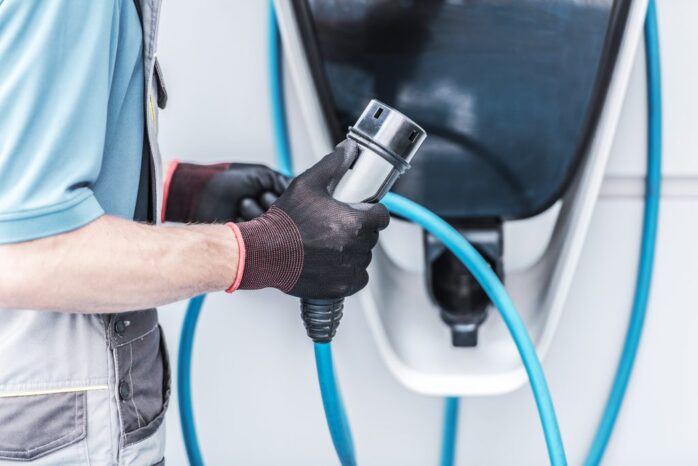
Electric vehicles (EVs) are becoming increasingly popular, with many people choosing to ditch their gas-guzzling cars for a more environmentally friendly ride. Whether you’re considering an EV or already have one, one of the most important decisions you can make is whether you want to perform an electric car installation yourself or hire a professional.
Pros of Hiring a Professional
When deciding to DIY or hire a professional for an electric vehicle installation, there are many considerations on both sides. It’s essential to think through all the pros and cons of each option before making a decision. Here are some of the key benefits that could be gained by using a professional installer:
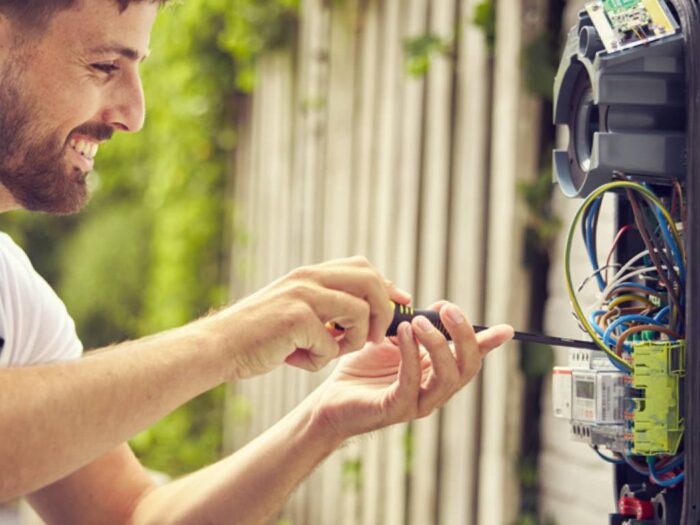
Experience and knowledge
Professional installers have received specialized training and experience in installing electric vehicles – including unique wiring needs, battery management systems, off-grid charging solutions, etc. They can also provide an accurate checklist that creates a connection between the energy sources and uses points such as charging stations and outlets so everything can be securely installed and operational from the start.
Guarantee on services
Licensed installers will provide some kind of guarantee or warranty on their services which ensure no hidden extras or unexpected costs during installation. This ensures that you won’t be liable for any damages caused by installation-related problems due to the installer’s negligence after completion.
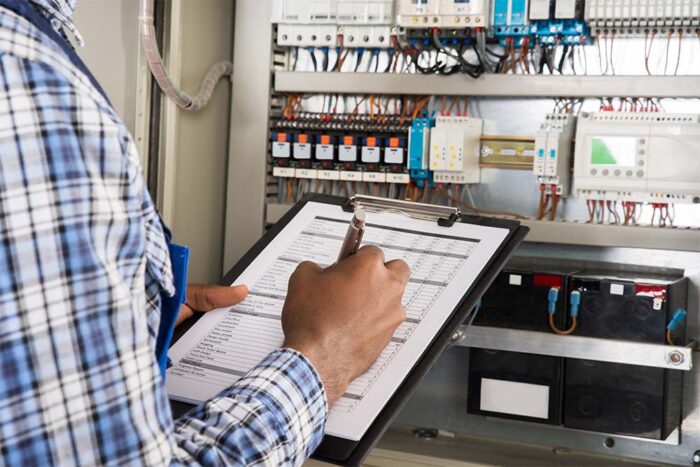
Save time
Doing installations yourself risks being subject to more delays than when relying on experts who have access to better resources like technicians and tools needed for correct installations procedures like structural integrity testing which can save time going back to fix any incorrect connections found later down the line.
Professional advice
Professional installers often offer advice beyond just what is needed for basic installs; they may offer ideas on how to optimize electricity production stats such as solar array placements or orientation thereby allowing users to make informed decisions based on their individual requirements with greater confidence in their investment.
Cons of Hiring a Professional
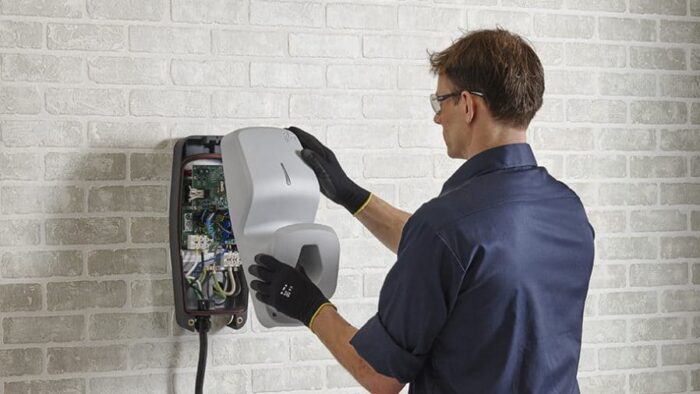
The cost for professional installation can be higher than a DIY approach as buying parts and labor costs can add up quickly. Professional installers require specialized tools, so the cost of these tools will also add up to the overall expense of your EV project. The time taken for professional installation is much longer than a DIY project and this will depend on the contractor’s backlog and their availability at any given time of day or week.
Professional installers may be less hesitant than experienced DIY enthusiasts to take on potentially challenging aspects of the electric vehicle conversion process due to certain perceived liabilities associated with taking on such complex projects. This may result in some tasks being left incomplete after installation or cause delays in progress due to issues that were not properly addressed prior to installation commencing.
Lastly, profits from their services must be kept in mind – professional installers have overhead costs associated with running a business and these too must be included in the final pricing estimates provided by your installer.
Pros of DIY Electric Vehicle Installation
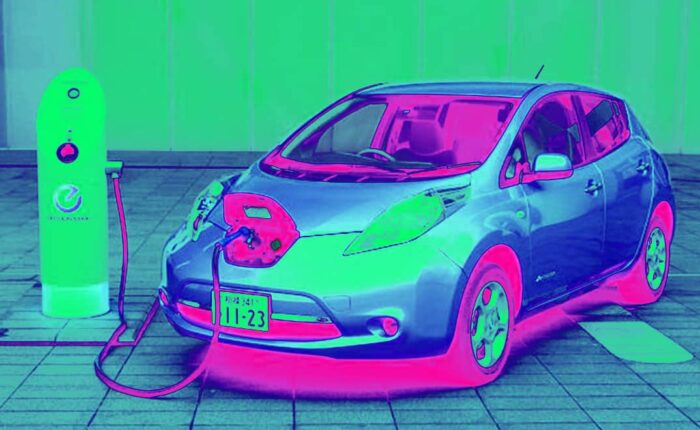
Doing your own electric vehicle installation is a great way to save money and maximize your return on investment. When you do the job yourself, you can avoid costly labor costs and be sure that everything is done exactly the way you want it. Furthermore, many components of electric vehicle installation are relatively straightforward, from wiring and other electrical tasks to interior design and customization. With the right tools and research, installing an EV yourself can be an enjoyable and rewarding experience.
Additionally, some parts of the installation are actually easier to do yourself rather than hire someone else. For example, when it comes to cutting down a battery box or soldering some wires together, having hands-on control provides more flexibility than handing it off to someone else. Especially if you have any experience with car work or home projects like woodworking or plumbing, doing it yourself could be the perfect solution for your EV project.
Finally, doing the work yourself also allows you to familiarize yourself with every aspect of your EV setup without relying on someone else’s qualifications or expertise. This can not only help save money but also give you peace of mind that your vehicle is set up correctly for maximum performance and safety.
Cons of DIY Electric Vehicle Installation
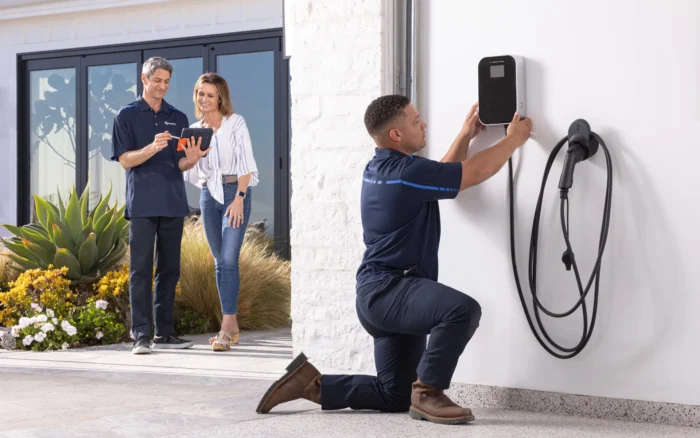
The most serious is safety — incorrectly wiring an electric vehicle can cause fires, so it’s essential to get everything right. If you’re not cautious and experienced in this kind of work, you can also create a short or hinder the performance of the vehicle which can ultimately lead to costly repairs that weren’t necessary in the first place.
You should also consider whether you have all the tools and materials necessary for successful installation — it’s easy for unexpected costs to add up and this could put a dent in any supposed cost savings. Additionally, depending on what type of battery your car uses, you may need special tools which could be hard to source or expensive.
Finally, electric vehicles aren’t simple pieces of machinery that you can install just by following instructions — they involve intricate components like wires and circuits. Unless you have knowledge and experience with working with electrical systems, it’s never advised to toy around with something as important as electric vehicle wiring without consulting an expert first.
Conclusion
When deciding between a do-it-yourself electric vehicle installation or hiring a professional, there are many factors to consider. DIY can be cheaper, depending on the complexity of the project and available parts. You may also have extra hours available to devote to the project. On the other hand, if you are looking for a successful installation with minimal mistakes and optimal safety measures, it is best to hire a certified professional who can do the job proficiently and with genuine expertise. Professional installations would also include full diagnostics for any systems affected by your new part and when possible, warranty coverage for all components.
No matter how you choose to go forward with your electric vehicle installation, you should always weigh out both options carefully before making your final decision. Do some research about both DIY installs as well as professionals who specialize in this type of work so that you can select the best option for your specific needs and preferences.











